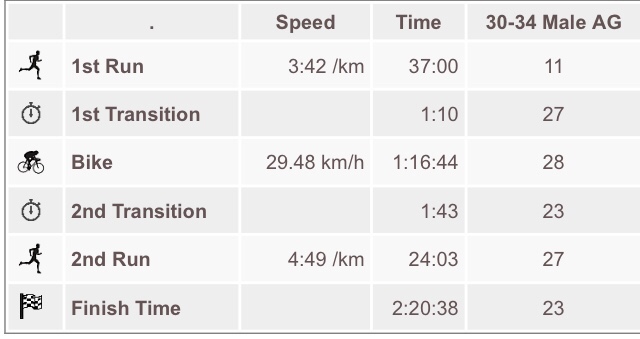After 5 years, our cherry tree finally had a string of good weather allowing it to bloom in exquisite pink glory!!

After 5 years, our cherry tree finally had a string of good weather allowing it to bloom in exquisite pink glory!!

Look back at my previous post, and you’ll see at least one of the mentioned “recommendations’ is gone. Bankrupt. crypto blew up…and then it all blew up. I’m leaving posts where they are as a reminder to myself to stick closer to what I know and be especially cautious of sudden wild popularity in supposed “investment” opportunities. Maybe crypto will still turn out to be a great opportunity in the future. At this point I’m choosing to sit back and just see what happens.
If you have extra cash that you don’t need for immediate expenses, you owe it to your(future)self to consider investing. We are living in bountiful times with all the available brokerage accounts that offer low (or no) account minimums along with fractional-share investing and $0 trading fees. Investing as little as $1 is possible, so why not put some of your extra cash to work for you? Investing doesn’t have to be scary, and I’d love to discuss any investing topic you might be wondering about. Of course I’m not your financial advisor, so you should carefully consider your personal situation prior to diving in.
That being said, if you determine that investing is right for you, getting started with Robinhood and/or Webull is as simple as clicking these links and creating your account. Both are popular investment platforms that offer shares of stock as a bonus for each new account opened via these links.
Say it with me: Facebook is not a public space. Facebook is not a public space. Facebook is not a public space…
There can not be infringement on free speech when Facebook/Twitter/etc. remove your posts from their platforms, because they are private companies offering private services. When they determine something is not fit for their platform, they have every right to remove it. Think of it like a shopping mall: if you go into a mall and start yelling “Fuck you!” to everyone you pass, the mall owners can throw you out because it is their privately owned space, not public space. They are not limiting your right to free speech.
There can be an argument made that these platforms are “essentially the same” as public space, or that they serve the same purpose given how many people use them, but the fact remains they are still private.
I’m trying to eliminate software and services that lock me into a specific device manufacturer or device type. Instead I want to focus on services that can be used more easily across multiple devices. Email is one example: it doesn’t matter whether I’m using iOS, Android, or just a browser. I can still access my account when needed.
For posting to a wide audience, my blog will take precedence. This creates an easy way that anyone can follow what I’m up to without any other account necessary. Writings on the blog have the added advantage of being able to be moved at any time to a different platform without significant interruption. Comments are disabled by default, but may be enabled for some posts.
Mastodon will serve as ‘social media’ hub. This is preferable to Twitter/Facebook/Instagram since it does not depend on farming people for its continued existence. Mastodon also does not require an account to be able to view what is public on the platform; alternatively a post can be restricted to account holders that have been approved as “Followers”. The software is free and open to development by anyone. The main developer behind the project (currently) is supported by donations and sponsorships. Mastodon will be the place to engage in discussion, should any of my thoughts prompt someone to respond.
Direct communication can be accomplished via XMPP. This protocol is well known and under continuous development. Several popular communication platforms started out using this protocol and then closed off into their own system (Slack/Google Hangouts). The XMPP protocol is open, like email, and apps are actively developed for many platforms. Examples include ChatSecure and Monal on iOS, Conversations and Zom on Android, and Pidgin/Gajim/Adium on the desktop. There is even a web interface available at conversejs.org.
A secondary option for direct communication will continue to be email. I expect this will be available and familiar to almost everyone.
Each of these tools has benefits that the current popular services do not:
1. Each of these facilitates ownership of produced content. This is known as POSSE (Publish Own Site Syndicate Elsewhere). If I don’t like my current provider, I may switch. I can even roll my own, if I wish, either on a shared machine somewhere or on hardware in my own home.
2. If I were to choose to switch away from my current provider, all of my data is mine to move to a new location and pick up as if nothing changed. Each of these systems is built on free software and open data, allowing me to export my info and upload to any other provider with minimal effort.
3. These services are available across devices and operating systems. There are apps for Android, iOS, and any desktop system that support each of these tools. There are browser interfaces for the above tools. I am not locked into using Apple’s Mac + iPhone because that is the only way to access iMessage. I am not forced to use Facebook because that is the only way to access Messenger, or WhatsApp because their system is locked down.
4. All of the above can be set up on a domain I own. I can completely control my “name” on the web, as well as standardize it across the multiple services.
Morning walk through Powell Gardens (Kansas City, Missouri)

We had some fun yesterday at the Night Flight 5k. Kari was 1st female finisher and Alek and I were 2nd overall (with the stroller)!

Kari, you never cease to amaze me in what you are willing to put your body and mind through, and also how well you are able to handle it. You tackled an 18 mile run after a 1500m active ice bath and 68 miles of biking up and down a mountain. Talk about extremes! In spite of it all, the weeks and months of ‘wake up-run-swim-bike-sleep’ paid off and you killed it in your race.




Competing on a world stage for the first time.


First was a flat, but winding, 4-lap 10 kilometer run through the streets of Pontevedra. Then just over 36 kilometers of biking in the hills outside the city. The final segment was another 2 laps in town for 5 kilometers.

It feels good to finish with the flag in your hand.
